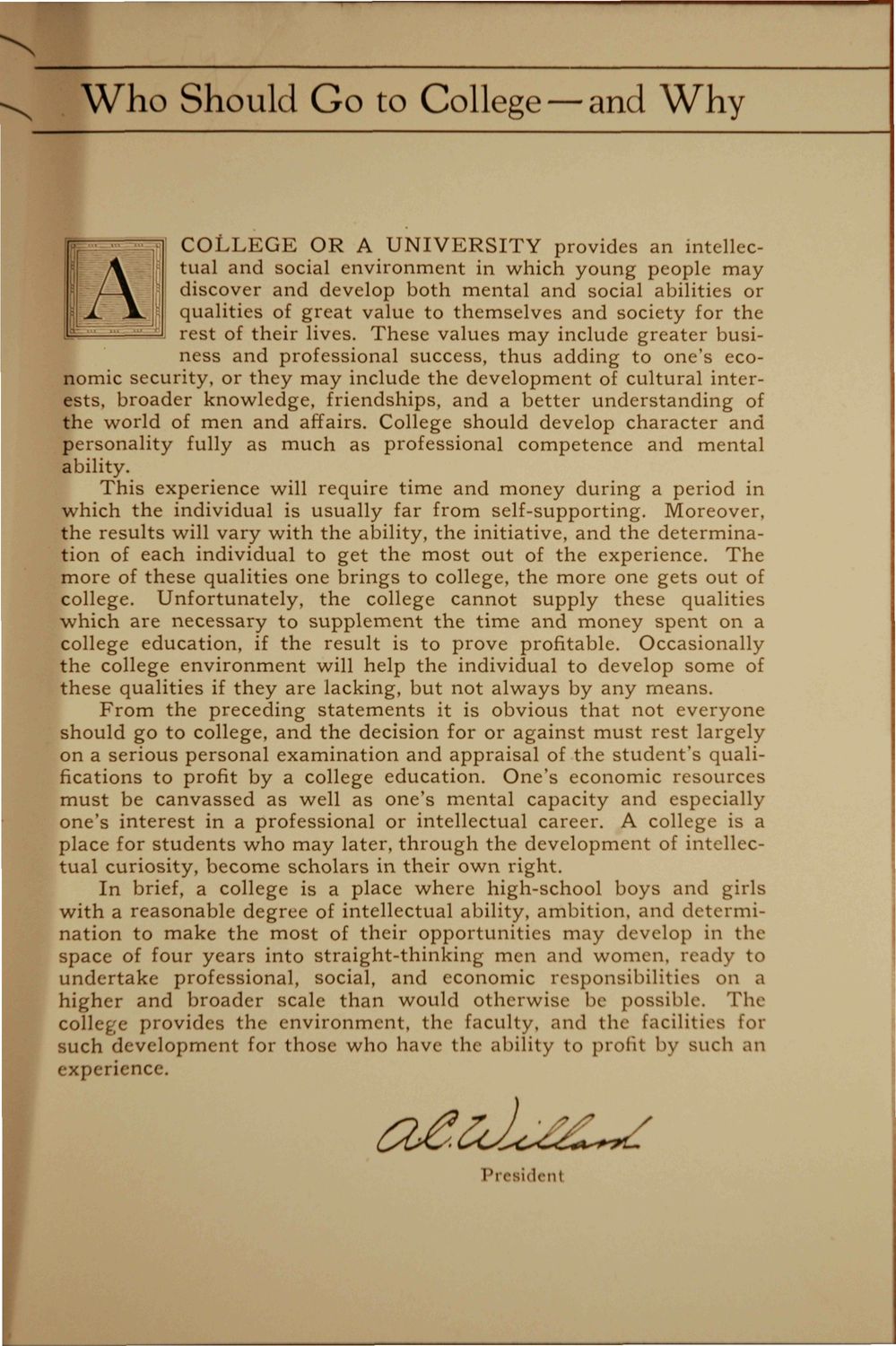| |
| |
Caption: Book - First Year at University (1935)
This is a reduced-resolution page image for fast online browsing.

EXTRACTED TEXT FROM PAGE:
W h o Should Go to College — and W h y C O L L E G E OR A U N I V E R S I T Y provides an intellectual and social environment in which young people may discover and develop both mental and social abilities or qualities of great value to themselves and society for the rest of their lives. These values may include greater business and professional success, t h u s adding to one's economic security, or they may include the development of cultural interests, broader knowledge, friendships, and a better understanding of the world of men and affairs. College should develop character and personality fully as much as professional competence and mental ability. This experience will require time and money during a period in which the individual is usually far from self-supporting. Moreover, the results will vary with the ability, the initiative, and the determination of each individual to get the most out of the experience. The more of these qualities one brings to college, the more one gets out of college. Unfortunately, the college cannot supply these qualities which are necessary to supplement the time and money spent on a college education, if the result is to prove profitable. Occasionally the college environment will help the individual to develop some of these qualities if they are lacking, but not always by any means. F r o m the preceding statements it is obvious that not everyone should go to college, and the decision for or against must rest largely on a serious personal examination and appraisal of the student's qualifications to profit by a college education. One's economic resources must be canvassed as well as one's mental capacity and especially one's interest in a professional or intellectual career. A college is a place for students who may later, through the development of intellectual curiosity, become scholars in their own right. In brief, a college is a place where high-school boys and girls with a reasonable degree of intellectual ability, ambition, and determination to make the most of their opportunities may develop in the space of four years into straight-thinking men and women, ready to undertake professional, social, and economic responsibilities on a higher and broader scale than would otherwise be possible. The college provides the environment, the faculty, and the facilities for such development for those who have the ability to profit by such an experience. President
| |